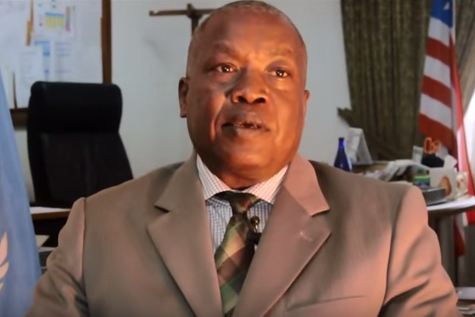Liberia scales up access to life-saving medical oxygen
A lack of uninterrupted access to oxygen in Liberia has contributed to preventable deaths, a problem amplified by the COVID-19 pandemic, when demand for medical oxygen surpassed the country’s capacity.
In a bid to address this deficit, in 2022, local health authorities, with funding from the European Union, USAID and the German government, and support from World Health Organization (WHO), established two new state-of-the-art pressure swing adsorption (PSA) oxygen plants.
One plant is at the Star Base on Bushrod Island in Monrovia, and the other at Liberia Government Hospital in Bomi County.
This has seen the percentage of health centres and hospitals providing medical oxygen nationwide increase from 51% in 2021 to 67% in 2023.


